Grooming & care
Electrolytes: An extravagance or an essential for your horse?
1 August 2022
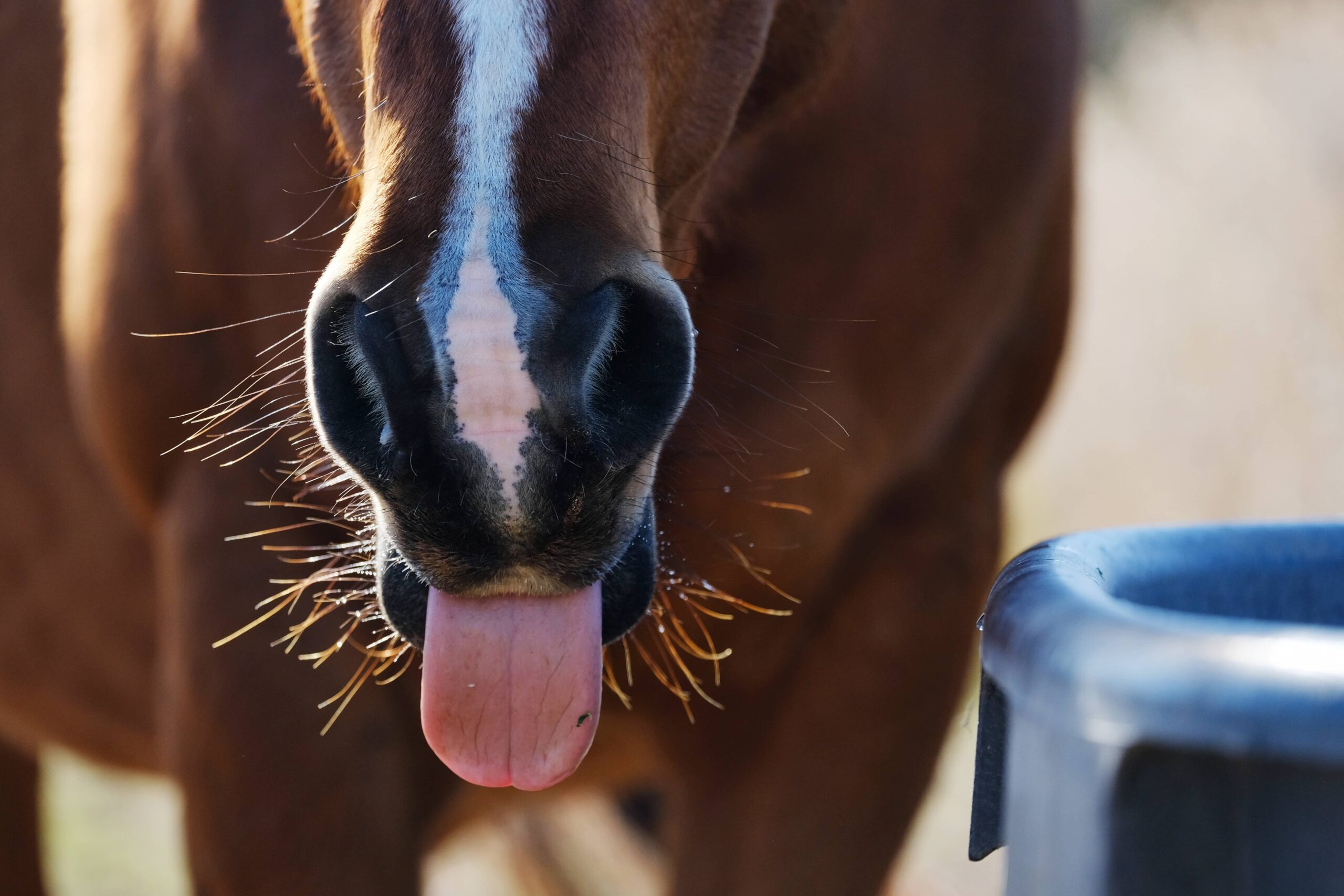
Grooming & care
1 August 2022

Electrolytes are mineral salts vital for keeping your horse’s body in good working order. The main causes for a mineral salt deficiency are heat waves and stress. But, there’s a fine line between the desire to provide for your horse’s well-being and excessive food supplements. So, we asked ourselves if electrolytes were a vital necessity or just an indulgence to boost your horse’s performance. Well, we can tell you right now that they are your best allies to keep your horse fit and healthy during heat waves and in the summer.
Electrolytes are positively or negatively charged minerals contained in body fluids. These substances allow a current to flow in solution by the movement of ions. They are vital as they keep your horse’s body in good working order. They are found in body fluids and naturally eliminated through sweat or urine.
The main electrolytes in horse sweat are positively-charged sodium and potassium ions (Na+ and K+ respectively). There are also negatively-charged ions such as chlorine (Cl-).
Compared to other animals, a horse can sweat a lot and this sweat is packed with mineral salts. During heat waves or strenuous workouts, your horse can lose up to 15 litres of sweat per hour. As a result, there will be a sharp decline in its mineral salts reserves.
As a horse’s body doesn’t generate them naturally, this loss in electrolytes must be covered by food and hydration.
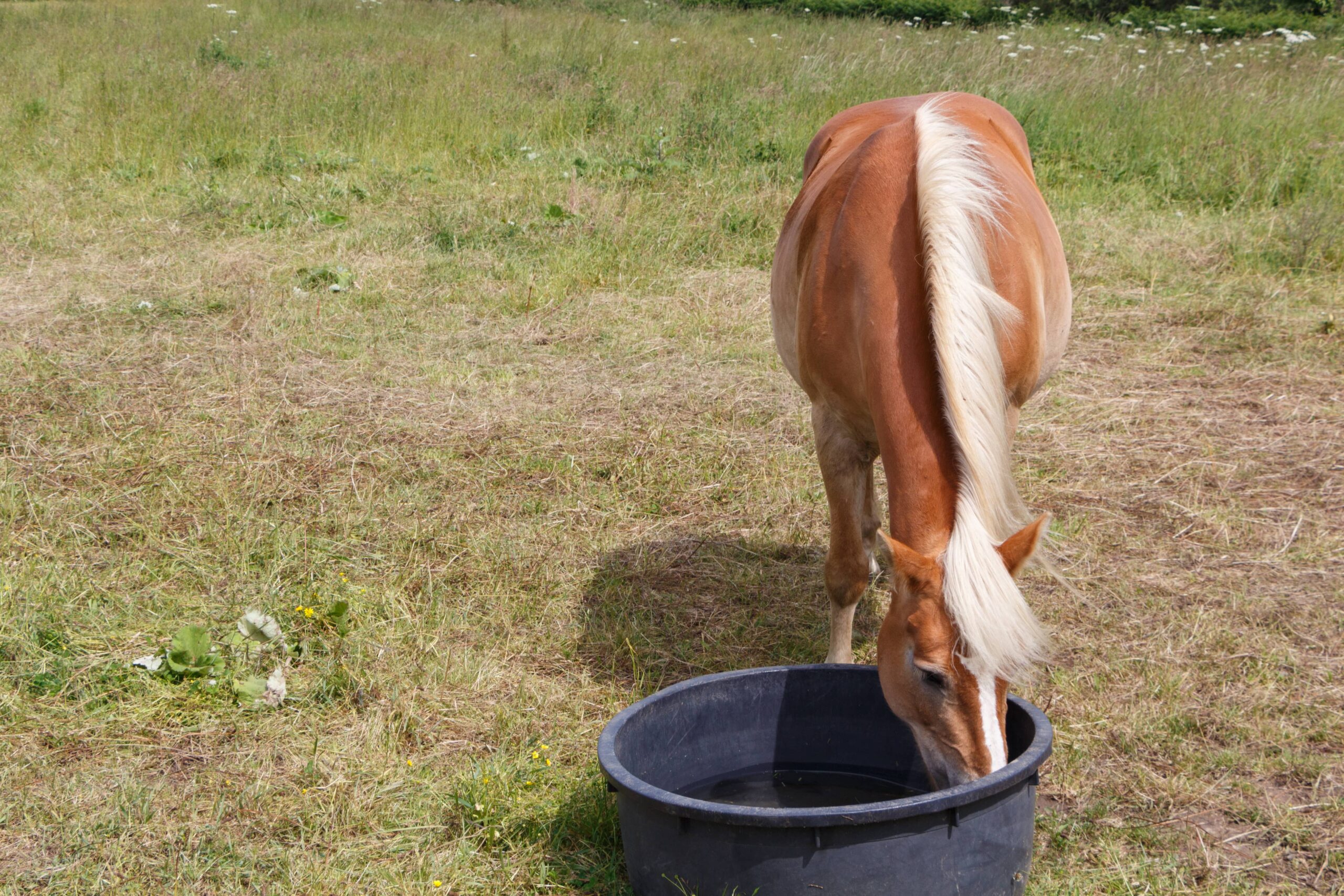
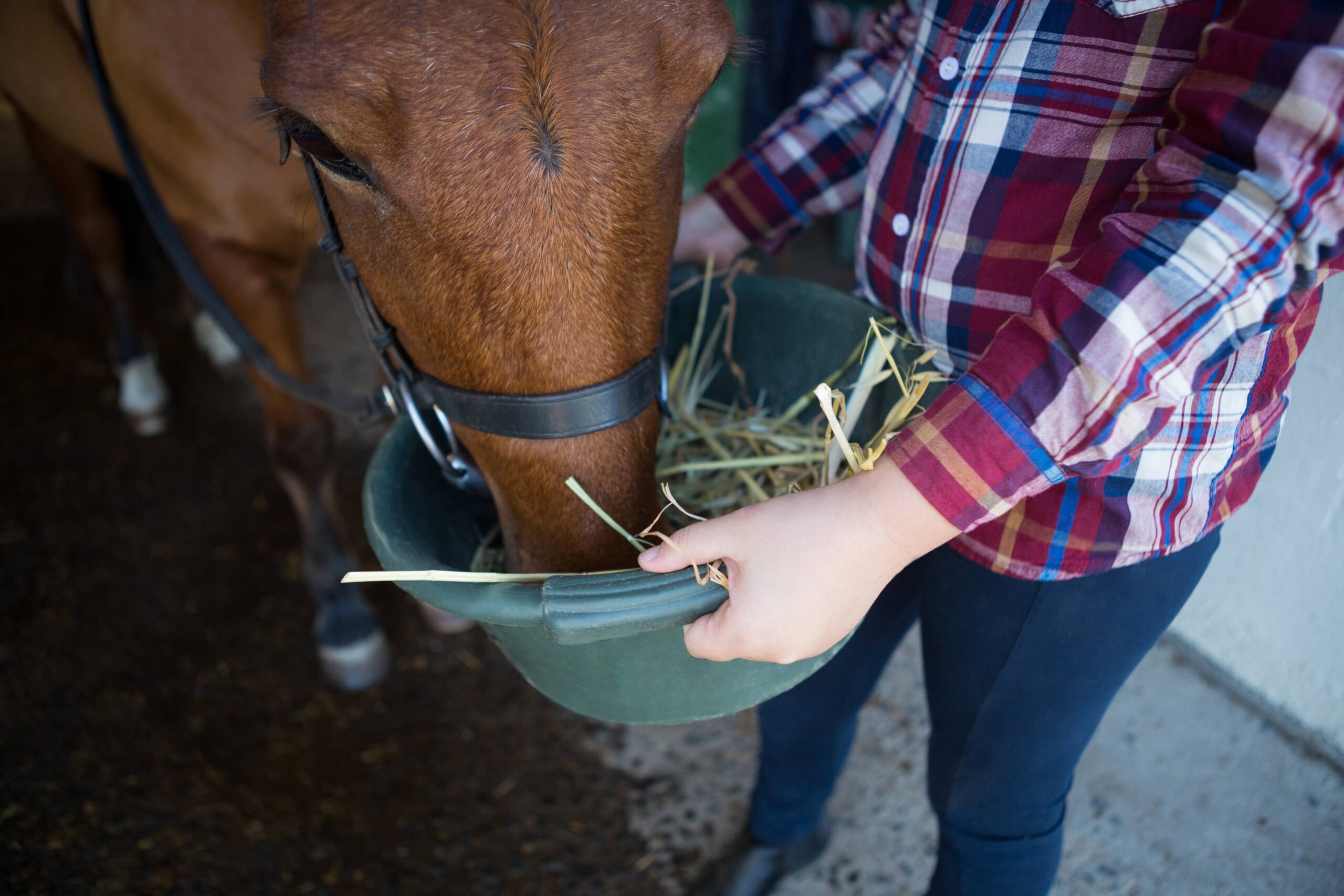
When the body is less effective, performance levels drop. Your horse will be dehydrated and some disorders may appear, such as muscle spasms, cramps, exhaustion, sometimes even resulting in neurological dysfunctions.
Remember: Whether you administer electrolytes as liquids, solids or via a syringe, you must always provide your horse with enough water at the same time. For example, if you dilute them in water, you must give your horse a second bucket of clean water. Giving your horse mineral salts without the water would simply make it more dehydrated!
Food is the main source of electrolytes. Most of the time, a balanced diet tailored to your horse’s needs, together with good hydration and access to a salt block covers its mineral salt requirements. In summer, when the mercury rises, or during strenuous workouts electrolyte loss is higher, especially for competition horses. In this case, administering electrolytes is strongly recommended.
A salt block is a source of electrolytes for your horse. That’s why it is important your horse has access to one in its field or stable stall. Even if your horse doesn’t lick its salt block, don’t take it away. Horses take care of themselves. When it doesn’t use it, it’s simply because your horse doesn’t need to. That said, you’ll have noticed your horse uses it a lot more in high temperatures.
[Click here for further details on all our guidance to protect your horse during heat waves]
A second mistake to avoid: Swapping a salt block with a tasty, more appetising, treat. Sugary treats don’t replace electrolytes as they don’t provide the necessary mineral salt needs.
A competition horse is a bit of a special case. As it makes greater physical exertions than a recreational horse, a competition horse’s electrolyte requirements are higher. A competition horse is more likely to experience situations when it sweats profusely. As such, it is more prone to electrolyte deficiencies. Mineral salt supplements are therefore a necessity.
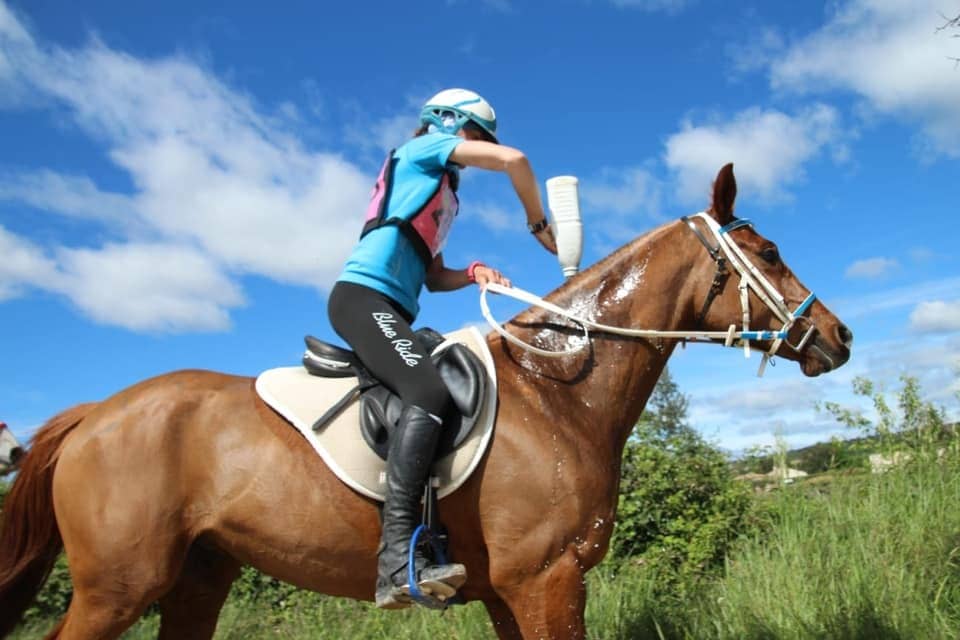
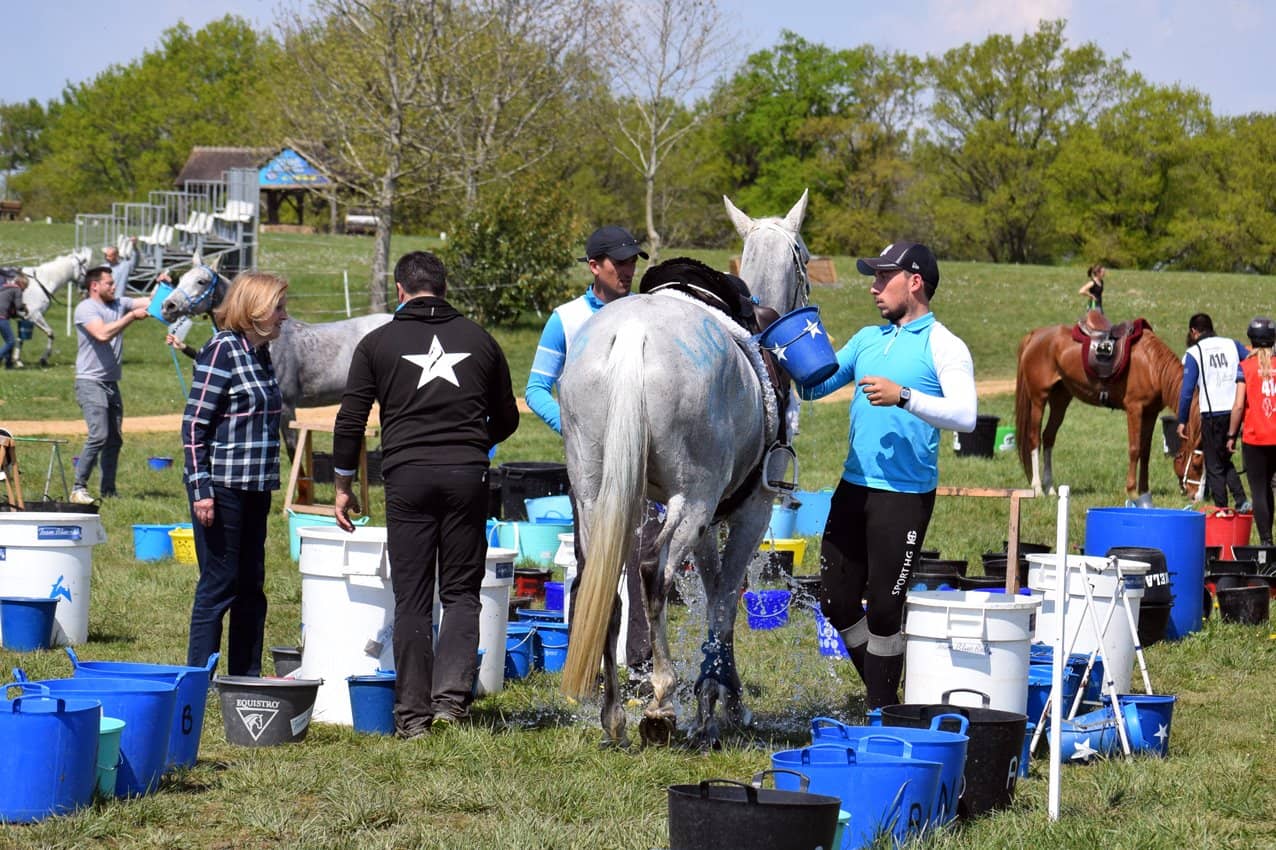
Salt comprises sodium and chlorine yet, as we’ve seen, horse sweat also features a large amount of potassium. Salt supplements alone will not compensate for this loss. That’s why it is really important to administer a balanced blend of each electrolyte, as they affect one another.
It’s best to give your horse electrolytes after each occasion when it sweats profusely. This can be taking a trip in a horse box, during training or a relatively intense competition whatever the temperature or time of year.
For competitions, the advice is to give your horse electrolytes one hour beforehand as it needs this time to properly absorb them. Doing so, covers the chances of a below-par performance linked to deficiency during the event.
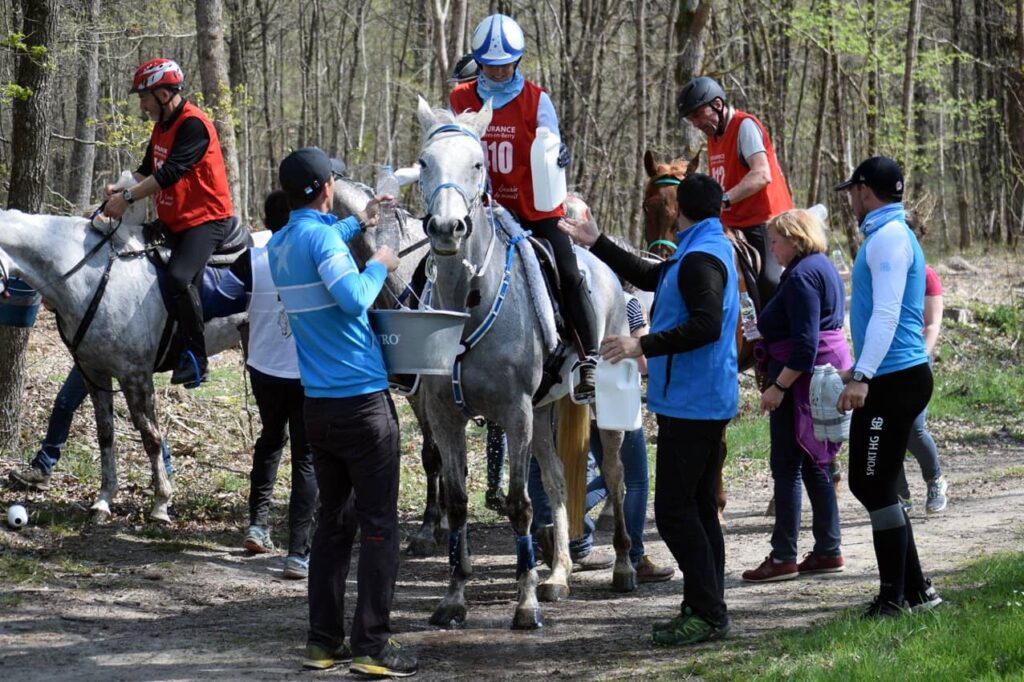
Each option helps prepare your horse prior to competing, taking a journey or before an event where it will sweat profusely and lose mineral salts. Electrolytes can also be taken after workouts to replenish reserves that have dropped for reasons mentioned above.
Electrolytes are vital elements so that your horse’s body is in good working order. Their use, together with water, is inextricably linked. So, you should check that your horse is constantly well-hydrated. Electrolytes aren’t mandatory but they remain highly recommended particularly if you have a competition horse when they become a must after profuse sweating.